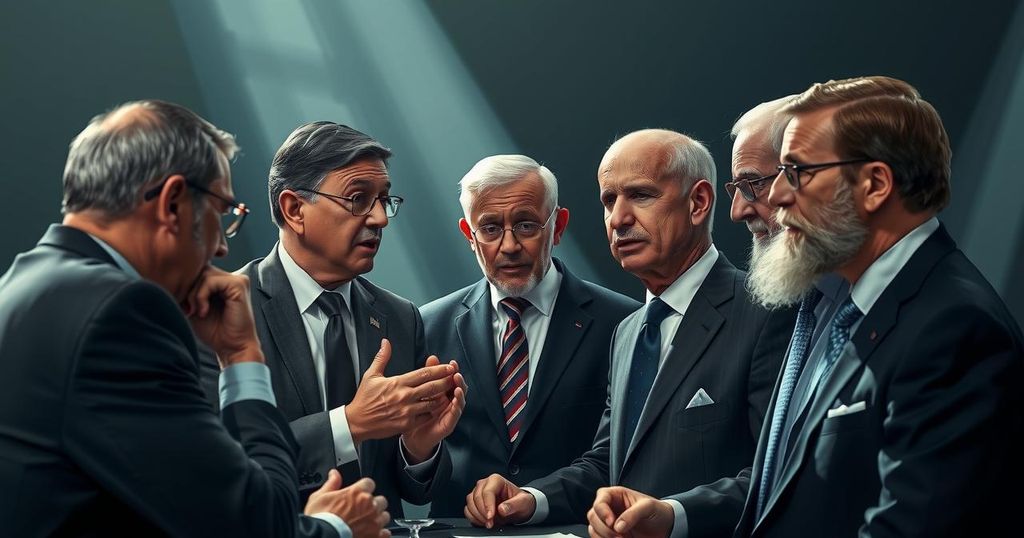G20 leaders convened in Rio, addressing wars, climate change, and poverty while urging cooperation on humanitarian aid and economic reforms. They expressed concerns over conflicts in Gaza and Ukraine, emphasizing the need for ceasefires and support for affected civilians. Brazil’s presidency introduced new priorities, while leaders anticipate challenges from Trump’s impending return to power.
During the G20 summit in Rio de Janeiro, leaders from major economies confronted pressing global issues such as climate change, poverty, and the ongoing conflicts in Gaza and Ukraine. They issued a joint statement that underscored the need for humanitarian aid and multilateral cooperation, particularly in light of the anticipated return of Donald Trump to power next January. Discussions highlighted the impact of these challenges on global stability and the need for collective action to mitigate economic distress. The summit, hosted at the Modern Art Museum in Rio, generated a narrow consensus focused on the humanitarian crises in both Ukraine and Gaza, emphasizing the need for ceasefires and civilian protection. Despite disagreements among participants, particularly regarding climate policy negotiations, the leaders acknowledged the importance of addressing urgent humanitarian needs and called for greater international solidarity. Brazilian President Luiz Inacio Lula da Silva advocated for a new global alliance aimed at combating hunger and poverty, emphasizing that such social issues stem from political decisions rather than scarcity. Leaders also discussed the imposition of fair taxation on wealthy individuals to finance social initiatives, highlighting the shift in focus driven by Brazil’s leadership. Chinese President Xi Jinping announced initiatives aimed at supporting developing nations, reflecting a broader desire amongst emerging economies for greater representation in global governance. The discussions at this summit represent a significant shift in priorities, particularly with a looming change in US leadership that could reshape the agenda moving forward. As the G20 leaders navigated these complex issues, the session served as a crucial platform for addressing the urgent need for cooperative approaches towards significant global challenges, while cautioning against the potential setbacks that may be posed by shifts in US foreign policy under its upcoming administration. In conclusion, the G20 summit laid bare the necessity for international cooperation amidst rising geopolitical tensions and an evolving global landscape, leaving delegates to contemplate the ramifications of Donald Trump’s administration on their ongoing efforts to address fundamental challenges such as climate change, poverty, and the pressing humanitarian crises affecting millions across the globe.
The G20, or Group of Twenty, is an international forum consisting of 19 countries and the European Union, representing the world’s largest economies. This summit serves as a platform for leaders to discuss and coordinate policies on pressing global issues ranging from economic stability to environmental sustainability. With major conflicts such as those in Ukraine and Gaza, as well as growing concerns regarding climate change and poverty, the recent summit in Rio takes place at a time of significant global upheaval. Furthermore, the anticipated return of Donald Trump as President of the United States raises important questions about future US foreign policy and its implications for international cooperation.
The recent G20 summit in Rio de Janeiro highlighted critical global issues such as climate change, poverty, and ongoing conflicts, which necessitate united international action. The summit underscored the urgent need for humanitarian aid and innovative collaborative solutions to tackle these pressing challenges. As global leaders prepare for a potential shift in US policy with Donald Trump’s return to power, the discussions at this meeting signal a crucial moment for strengthening multilateral cooperation and addressing humanitarian crises impacting millions worldwide.
Original Source: www.france24.com






